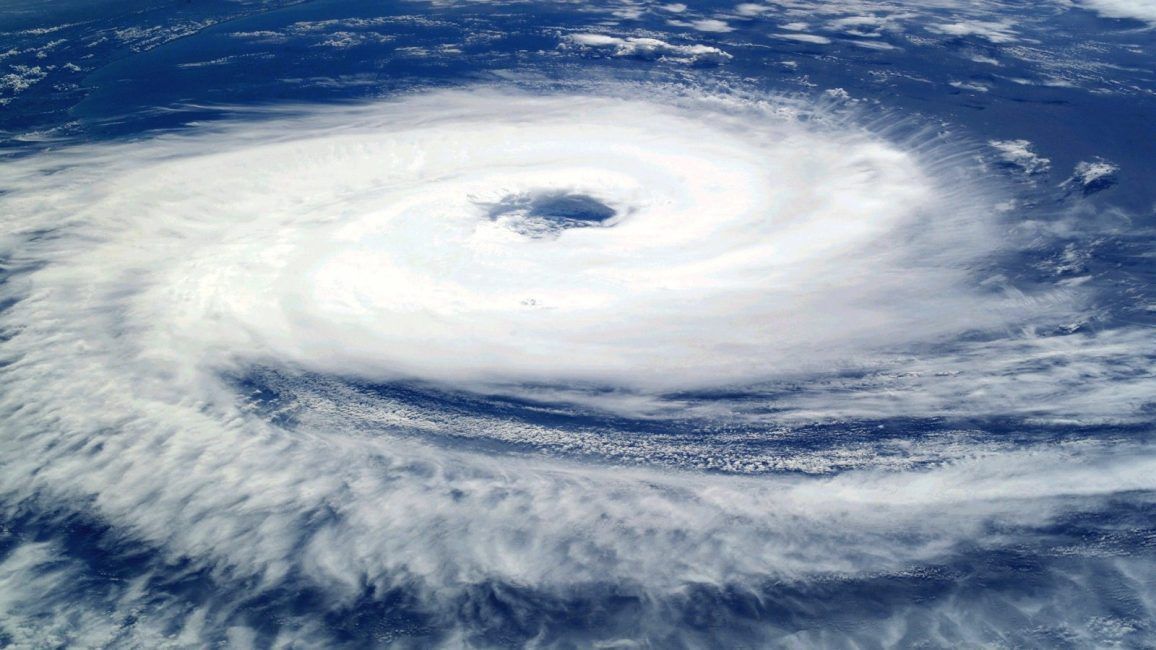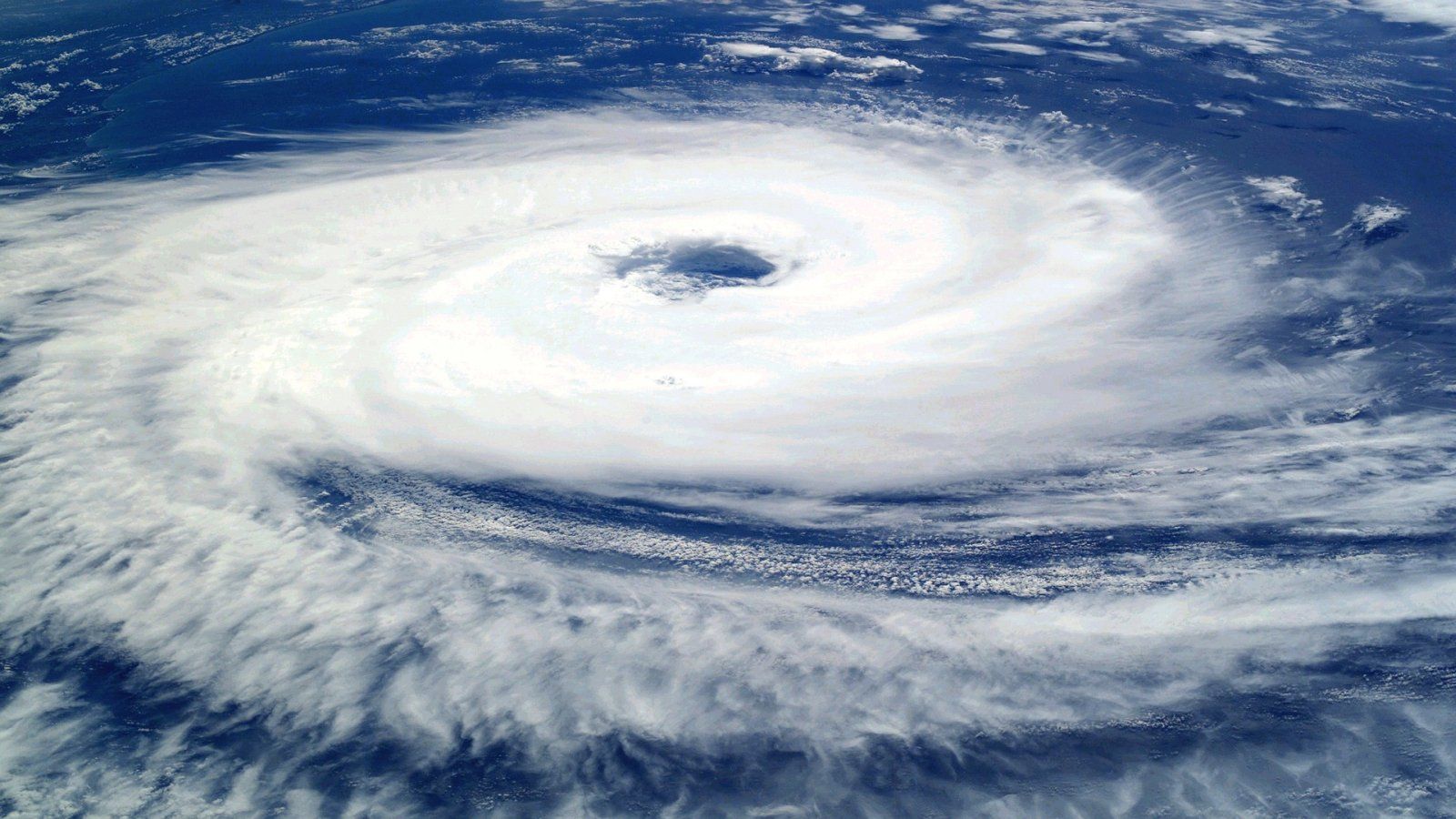What You Need to Know About Cyclones in Tonga
Tropical cyclones that develop in the South Pacific sometimes affect Tonga. If you are visiting the islands during the cyclone season, November to April, then there is a small risk of experiencing a cyclone. Due to the danger of this type of extreme weather event, it’s best to know how to prepare for a cyclone and know what to do if a cyclone occurs while you’re visiting. Nevertheless, Tonga is well-prepared with emergency procedures should a cyclone occur.
For more information on Tonga’s climate, see Tonga Weather, Seasons & Climate + Tonga Weather by Month.
When is the Cyclone Season in Tonga?
The cyclone season in the South Pacific starts in November and ends in April. This is during Tonga’s summer season or “wet season”. The peak months for cyclones being more likely to develop are December, January and February. There is also a higher risk of cyclones during an El Nino year.
How Often is Tonga Affected by Cyclones?
According to the Tonga Meteorological Service, “The average number of tropical cyclones to affect Tonga in a season is between 1 and 2. In the event of an El Nino, the frequency of cyclone
occurrence increases.”
Cyclone Warnings in Tonga
The weather is well monitored by the Tonga Meteorological Service and the New Zealand MetService, so cyclones are reported as soon as there are signs that they are beginning to develop. In short, a cyclone is extremely unlikely to take you by surprise, which gives you time to prepare.
How Cyclones are Reported
The first sign of a cyclone forming in the South Pacific might come from a “tropical depression”. Meteorologists will keep an eye on a depression that becomes a storm if wind speeds reach 65-120 kph (40-73 mph). If the wind speeds increase further, then the cyclone will be declared and given a name. Cyclones affecting Tonga in the past have been called “Gita” and “Waka”, for example. When a cyclone is given a name, it is widely reported in the media across Tonga and the rest of the Oceania continent.
Cyclones are given a category to showcase how severe they are. Category 1 is the weakest with wind speeds of 88-125 kph (55-78 mph) and Category 5 is the strongest with wind speeds greater than 250 kph (155 mph).
Meteorologists will draw up a five-day forecast outlining a path that they think the cyclone will take, which gives people within or near the path time to prepare. The path prediction is usually quite broad, as an exact path is difficult to determine, but updates are given as more data becomes available.
The Dangers of Cyclones
Why do you need to prepare for a cyclone? The severe gale force winds can cause significant damage to weaker structures in Tonga, for instance, buildings in villages and small towns. There may also be damage to power lines causing blackouts, damage to crops and trees, and dangerous airborne debris. Another danger can be contaminated tap water, although we recommend that you always filter (with a Lifestraw bottle, for instance) or boil tap water in Tonga before you drink it – see Is the Water Safe to Drink in Tonga?
It’s important to note that cyclone damage is quite localised, significantly affecting the areas in its path rather than the entire country. For example, cyclones in the past have only damaged a small group of islands in Tonga during a cyclone.
How to Prepare for a Cyclone
The first way to be prepared for a cyclone in Tonga is to be aware of weather warnings during your stay. If you’re visiting Tonga during the cyclone season, between November and April, be sure to check weather reports regularly.
Given the nature of cyclones, it’s difficult to determine exactly how much damage they will cause. With this in mind, it’s better to be overprepared than underprepared.
Ask your accommodation provider what is the cyclone procedure for the building. They will know which is the strongest part of the building in the likely scenario that you need to stay where you are during a cyclone.
Have an emergency kit at the ready, such as clothes, food and water for three days. It’s also useful to have a battery-operated radio (or spare power bank for your smartphone, for instance, where you can listen to the radio), as well as a torch with spare batteries. Make sure you know the emergency number for Tonga: 911.
Keep following the news and progress of the cyclone through radio, TV, text messages and online news outlets. You’ll be informed if evacuation is necessary. Official advice will be given through local radio, TV and text messages. Learn more about getting a Tongan phone number in The Best SIM Card in Tonga for Travellers.
What to Do if There is a Cyclone While You are in Tonga
If you are in Tonga during a cyclone, don’t panic but also don’t underestimate the damage a cyclone can cause. As long as you remain in a safe place and follow the advice of local authorities throughout the storm, you should be able to wait out the storm. Historically, fatalities have been very low during cyclones in Tonga. For instance, only two people in Tonga died during Tonga’s worst recorded cyclone, Cyclone Gita.
What to Do in a Cyclone
- Stay indoors in a secure area – follow the advice of your hotel or accommodation provider
- Disconnect appliances
- Stay clear of windows and doors
- If in a weaker structure, open the window away from the direction of the wind to keep pressure off the roof
- If the building you are in breaks up, protect yourself with mattresses, rugs, etc. and get under something solid like a table
- Don’t go in or near the ocean
- Don’t drink tap water for a few days after the storm – treat the water first using our tips in Is the Water Safe to Drink in Tonga?
A History of Cyclones in Tonga
While cyclones form in the South Pacific at least once per year, only some have affected Tonga since records began. Below is a record of cyclones that have affected Tonga since 1831, as well as more information about the cyclones that impacted Tonga the most in recent history.
Cyclone Sina
In November 1990, Cyclone Sina was a category 4 cyclone that brought down power cables and left the capital, Nuku’alofa, without power, as well as left minor damage to crops and weaker structures.
Cyclone Hina
Tonga experienced a Category 3 cyclone, Cyclone Hina, in March 1997. This caused damage to crops on Tongatapu and ‘Eua, but there was not a lot of structural damage reported. However, power lines were brought down causing a complete blackout on Tongatapu.
Cyclone Waka
In December 2001, the Category 4 Cyclone Waka caused damage to around 13 islands in Tonga, particularly in Vava’u, and caused one fatality.
Cyclone Ian
Notably, Cyclone Ian in January 2014 passed through the Ha’apai Islands. Although it caused much damage, there was only one death resulting from the cyclone.
Cyclone Winston
In February 2016, Cyclone Winston caused significant structural and crop damage to the islands of Vava’u.
Cyclone Gita
Tonga experienced its worst tropical cyclone since records began, Cyclone Gita, in February 2018. The cyclone destroyed some 120 homes and damaged around 1,130 buildings. Only two deaths were recorded relating to the cyclone, while three people suffered major injuries.
Cyclone Keni
Tonga experienced some effects from Cyclone Keni in April 2018. The cyclone caused a power blackout on the island of ‘Eua. The rest of Tonga went by relatively unscathed.
Cyclone Harold
In more recent years, Category 5 Cyclone Harold significantly impacted Tonga in April 2020. High tide and flash floods affected the island groups of Tongatapu, ‘Eua, Ha’apai and Vava’u, destroying three resorts on the west coast of Tongatapu.
Cyclones in Tonga, Month-by-Month
- November – 1875, 1923, 1930, 1964 and Cyclone Sina in 1990
- December – 1877, 1899, 1910, 1913, 1923, 1930, 1934, 1939, 1941, 1948, 1949, 1957, Cyclone Raja in 1986, Cyclone Val in 1991, Cyclone Kina in 1992, Cyclone Waka in 2001 and Cyclone Heta in 2004.
- January – 1833, 1863, 1875, 1883, 1887, 1891, 1896, 1901, 1911, 1912, 1915, 1920, 1932, 1936, 1939, 1944, 1945, 1946, 1952, 1954, 1955, 1960, 1961, 1970, 1985, Cyclone Nina in 1993, Cyclone Ron in 1998, Cyclone Heta in 2003, Cyclone Tam and Cyclone Urmil in 2006, Cyclone Wilma in 2011, Cyclone Ian in 2014 and Cyclone Tino in 2020
- February – 1839, 1874, 1882, 1891, 1903, 1913, 1928, 1933, 1936, 1937, 1941, 1945, 1947, 1956, 1969, Cyclone Ofa in 1990, Cyclone Vaianu in 2006, Cyclone Jasmine in 2012, Cyclone Winston in 2016 and Cyclone Gita in 2018.
- March – 1830, 1833, 1856, 1864, 1875, 1877, 1879, 1908, 1914, 1915, 1918, 1920, 1923, 1928, 1932, 1935, 1961, 1963 and Cyclone Hina in 1997.
- April – 1848, 1850, 1900, 1909, Cyclone Cliff in 2007, Cyclone Keni in 2018 and Cyclone Harold in 2020.
More Safety Tips and How to Prepare for a Cyclone in Tonga
That’s it for our cyclone safety guide for Tonga. To learn more about keeping safe while travelling in The Kingdom, take a look at the following:
- Can You Drink the Water in Tonga?
- Tonga Safety Tips: How to Keep Safe in Tonga
- What Medication to Pack in Your First Aid Kit for Tonga
Finally, get even more tips for planning the perfect getaway in The Complete Travel Guide to Tonga and the 31 Tips for Travelling in Tonga.
Author
Robin (Lopini) C.
This article was reviewed and published by Robin, the co-founder of Tonga Pocket Guide. He has lived, worked and travelled across 16 different countries before settling in the South Pacific, so he knows a thing or two about planning the perfect trip in this corner of the world. Robin works and consults regularly with the Ministry of Tourism of Tonga. Robin is also the co-founder of several other South Pacific travel guides and is a regular host of webinars with the South Pacific Tourism Organisation.

